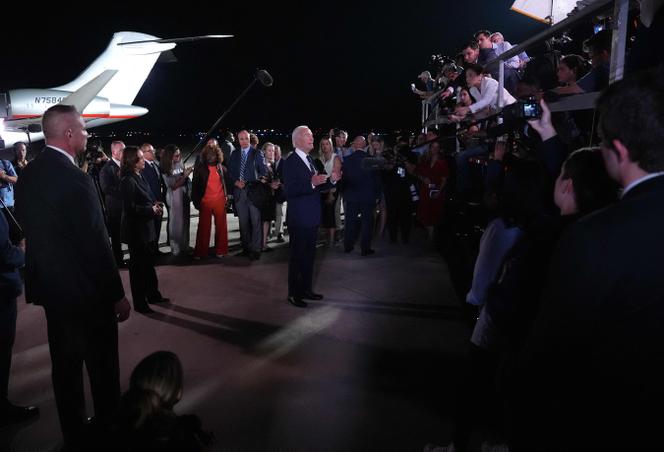


Joe Biden's term in office has a stain: the calamitous evacuation of American troops from Afghanistan in the summer of 2021, as bad as the fall of Saigon in 1975. The Democratic president ran the risk of a second: The failure to get back Americans held prisoner in Russia, including the Wall Street Journal's Moscow correspondent Evan Gershkovich. The situation was reminiscent of Jimmy Carter's (1977-1981) humiliation when American diplomats were taken hostage in Iran – and freed 12 minutes after Ronald Reagan's inauguration in 1981.
On May 23, Donald Trump was boasting on social media in anticipation. The Republican candidate claimed that Gershkovich would be released "almost immediately after the Election" if he won. "Vladimir Putin, President of Russia, will do that for me, but not for anyone else, and WE WILL BE PAYING NOTHING!"
Swing and a miss. The prisoners were released on Thursday, August 1, under Biden's presidency, and the Democrats turned their homecoming into a typically American moving ceremony. As night fell, Biden was there to greet them as they stepped off the plane at Andrews Air Force Base in Maryland, along with the candidate to succeed him, Kamala Harris. Among the newly released prisoners were Gershkovich and former Marine Paul Whelan.
"It feels wonderful," said Biden, responding to reporters, which he hadn't done for a long time. "I was absolutely convinced we would get it done." A few hours earlier, at the White House, he had announced the news to the detainees' families: "There's nothing that matters more to me than protecting Americans at home and abroad."
With this moment, Biden is conveying a political message meant to highlight the difference between himself and Trump, who is accused of bullying the United States' European allies. "I mean what I said: 'Alliances make a difference'," Biden said. "All politics is personal. It matters. Other leaders trust you, you trust them, you get things done. And that's how this got done: with a lot of help."
Harris was present, but it was Biden's evening, meant to glorify the international feat of a president who has been criticized by his opponents for his lack of results with the Russian invasion of Ukraine and the Gaza conflict. "This is just an extraordinary testament to the importance of having a president who understands the power of diplomacy," said Harris.
The American press, briefed in great detail, was able to recount the epic tale. Biden highlighted Slovenia's role. On July 21, he made a decisive phone call, using all his influence, with the country's Prime Minister Robert Golob to make sure that he agreed to free two Russian spies. An hour later, Biden announced to America that he was not seeking re-election, thereby becoming a president without much power.
You have 47.07% of this article left to read. The rest is for subscribers only.
